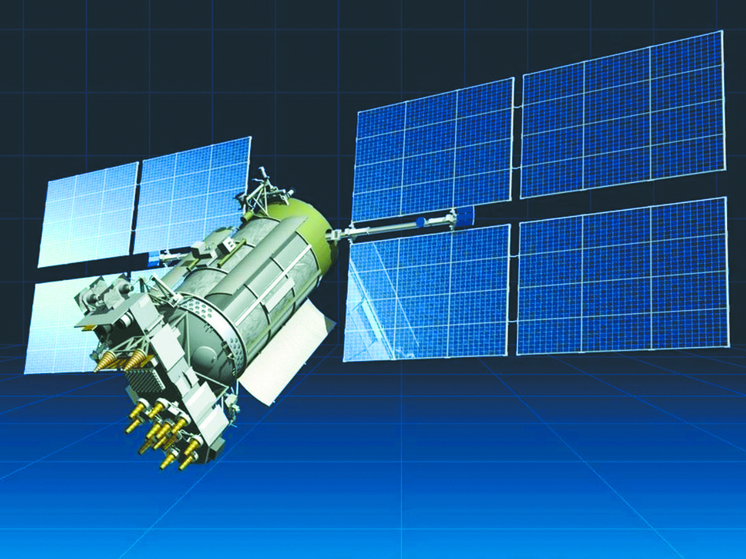After 2030, it is planned to create six high-orbit satellites in three geosynchronous orbits
Foreign sanctions are preventing the development of the domestic GLONASS navigation system. Well, they don’t allow her to bring the positioning accuracy to the desired 30 or at least 50 centimeters. General designer of JSC Reshetnev, Academician Nikolai Testoedov, spoke at the general meeting of the Russian Academy of Sciences in Moscow about how to overcome the gap from the American GPS system.

According to 2022 data, thanks to new satellites, GPS has increased the accuracy of civilian signals to 60–90 centimeters, and GLONASS, according to Ivan Revnivykh, head of the department for the use of the GLONASS system of the Roscosmos state corporation, to 1.32 meters. According to his own statement, after the implementation of the federal project “Maintenance, development and use of the GLONASS system”, high-precision navigation data can be improved to 0.3 meters.
Nikolai Testoyedov at the general meeting of the Russian Academy of Sciences voiced a more modest desired accuracy — in half a meter Now, based on his speech, we will try to understand when we will be able to achieve such a result.
So, the GLONASS system, deployed in 1999, consists of 24 devices of three modifications: Glonass-M, produced since 2003, Glonass-K — since 2011, and two Glonass-K2, launched this year . All devices, in addition to emitting a navigation signal, participate in the Cospas-Sarsat system (the international satellite search and rescue system).
Despite the fact that the warranty period for many satellites is 7–10 years, many, according to Testoedov, have already exceeded it by 2 times. Only 6 devices will require replacement within one to two years. This will not be very easy to do. After all, if in the first years of deployment of the group, Roscosmos sent 9 satellites into orbit at once, in recent years it has been sending 1-2 GLONASS satellites.
The main problem, according to Nikolai Alekseevich, is the supply, or rather, the under-delivery of electronic -component base from abroad.
“Until 2014, when the first sanctions restrictions were introduced, our share of imports reached 42%,” said the general designer. — Import substitution measures are planned for 2030 with the transition to 100% domestic production. Why so long? Still understandable! Only when in 2014 they became concerned about import substitution and revised the composition of all satellite instruments, it turned out that there were 6 thousand (!) nominal values of the electronic component base (ECB) — imported. Therefore, a lot of work was done to unify various equipment. Now it is being embodied in specific groups.”
The updated GLONASS system will have high-precision positioning, similar to the groupings being created in the world.
“It is planned to develop it with parameters that meet the requirements of ICAO (International Civil Aviation Organization. — Author). When landing civil aviation at unequipped airfields, the signal should arrive with a delay of no more than 6 seconds, with an accuracy of no worse than half a meter,” Testoyedov said.
Next, the RAS academician described the future of the evolutionary development of the GLONASS group. Thus, from 2025 it is planned to launch the modernized Glonass-K2 satellites in an import-substituted and multifunctional version.
Local navigation zones will have to receive a 100 times more powerful signal compared to the standard one. Mono-navigation devices weighing about 1 ton will also serve for this purpose.
After 2030, it is also planned to create 6 high-orbit (about 36 thousand km above the Earth. — Author) satellites in three geosynchronous orbits, which will increase the availability of the signal in cities and difficult terrain in Russia.
Under development, according to Testoedov, the question is about creating a low-orbit constellation of 300 satellites that will fly at an altitude of 500 to 100 kilometers above the Earth. It is expected that they will increase the signal power a thousand times.
As it turned out, we will need import substitution not only for electronic components. Now the accuracy of navigation signals also depends on various international services, such as the Bureau of Weights and Measures, the Association of Geodesy, global navigation systems and laser ranging services, as well as the rotation of the Earth.
“They can carry out, and some are already carrying out discriminatory measures applied to domestic systems,” said Academician Testoyedov. In this regard, he proposed that the BRICS countries unite to create similar “nomenclature products” whose characteristics are not inferior to those of international services. The deterioration (of results), according to him, can only be 20%, which is not critical for such tasks.
























































Свежие комментарии